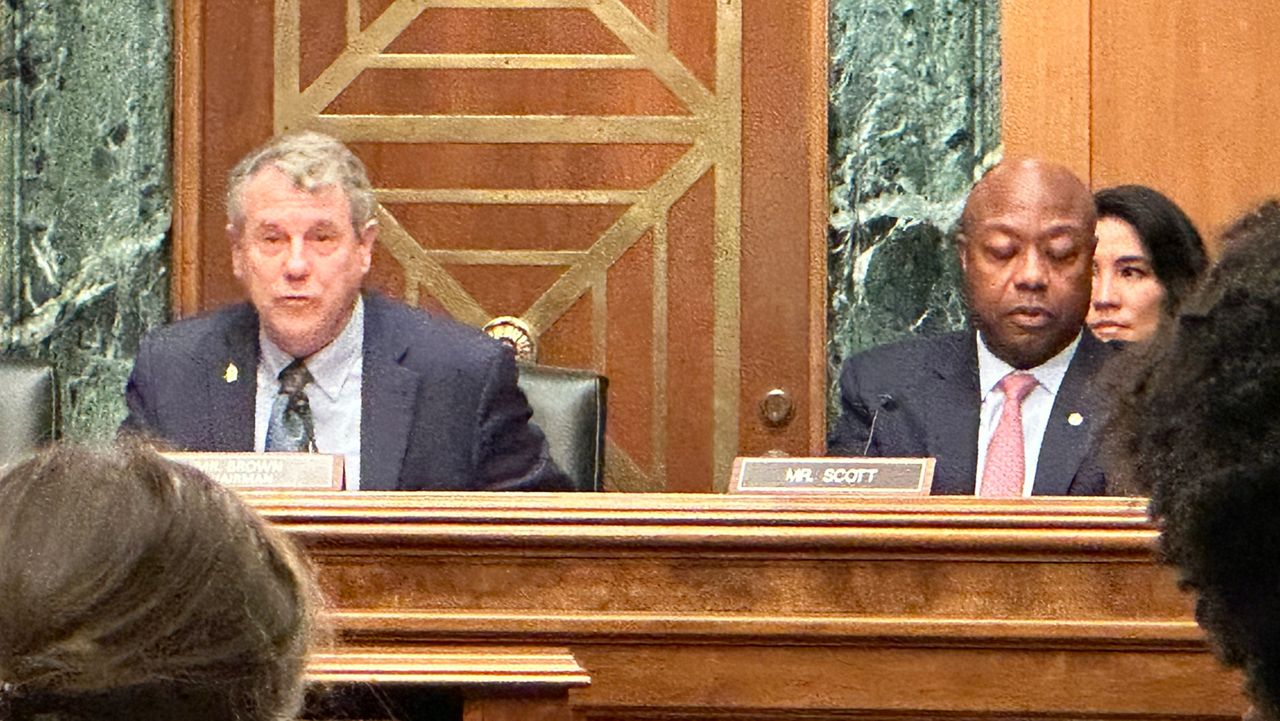WASHINGTON, D.C. — The National Transportation Safety Board (NTSB) released its final report on the 2023 train derailment in East Palestine, Ohio that spilled toxic chemicals into the community, adding new pressure on Congress to pass long-stalled railway safety legislation.
What You Need To Know
- The National Transportation Safety Board confirmed a faulty trackside detector did not catch a rail car bearing that was on fire prior to the derailment on Feb. 3, 2023
- The NTSB's report may add pressure to advance long-stalled rail safety legislation
- Railroads and some Republicans say proposed rail safety measures are overly burdensome
A faulty trackside detector did not catch a rail car bearing that was on fire—20 miles before the train derailed, the NTSB confirmed after saying in a preliminary report that it was the likely cause of the derailment.
There is currently no federal requirement for trackside detectors, nor standards for how railroads should respond to bearing failure alerts.
An executive summary of the final report included safety recommendations such as creating a database of rail car bearing failures to identify risk factors.
But more than 16 months after the derailment, East Palestine resident Jami Cozza said she was frustrated that the NTSB can only make nonbinding recommendations. Safety standards can only be set by regulators and Congress.
“I feel like this was for every American out there to see what went wrong and to prevent this again,” said Cozza, who founded a group called Unity Council to advocate for other East Palestine residents. “And I don't want this to ever happen to any other community. What we have gone through, has been unimaginable.”
Rail safety legislation has stalled in Congress.
Sen. Sherrod Brown, D-Ohio and Sen. JD Vance, R-Ohio, both co-sponsored the bipartisan Railway Safety Act in March 2023.
The bill passed out of committee, largely along party lines, but has not been brought to the Senate floor for a vote.
The railroad industry—and most Senate Republicans—have said the regulations in the bill were overly burdensome.
Vance has argued the bill is not “big government.”
“Let’s just have the debate that we need to on bringing some commonsense rail safety to this country. We have way too many train crashes,” Vance said in a January interview with Spectrum News. “This legislation would address that problem. It’s time to vote on it.”
Brown has also blamed rail industry lobbyists. Norfolk Southern spent $2.3 million on federal lobbying last year and $500,000 so far this year, according to OpenSecrets.
“The problem has been the power of the railroads,” Brown said during a January interview with Spectrum News. “They have had their way far too often with Congress and all too often with regulators. This was a preventable accident.”
Though some House Republicans have said they would wait until the NTSB report to consider rail safety measures, its release remains unlikely to spur a vote.
Cozza urged lawmakers to push for a vote on rail safety legislation.
“My message to all the politicians in DC is this is not a red issue. This is not a blue issue,” Cozza said. “This is an issue of human lives. You're playing politics with my child's life. You're playing politics with human lives that are here in Palestine that want these acts passed so that we can prevent this in other communities.”
Earlier this week President Joe Biden announced a new rule that railroads keep real-time information about what hazardous materials are aboard trains, and that they share that information with emergency responders promptly in the event of a derailment.










